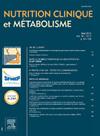厌食症-芳香策略在管理饮食改变临终病人
IF 0.4
4区 医学
Q4 ENDOCRINOLOGY & METABOLISM
引用次数: 0
摘要
厌食症是临终关怀中一种普遍且具有挑战性的症状,显著影响患者的营养状况、能量水平和整体生活质量。传统的管理方法,包括药物食欲刺激和饮食调整,往往疗效有限,并可能引起不良反应。因此,芳香疗法等补充疗法因其在刺激食欲方面的潜在作用而引起了人们的兴趣。从芳香植物中提取的精油,通过嗅觉刺激、自主神经系统调节和生物化学相互作用来增强消化功能和调节食欲。本综述探讨了精油的治疗潜力,包括柑橘,姜,薄荷,茴香和洋甘菊,在管理厌食症姑息治疗患者。这些油通过复杂的神经生理机制影响胃运动,减轻恶心,缓解应激性厌食症。各种给药方法,如吸入、局部应用和控制摄入,允许量身定制的干预措施,以适应个别患者的需要。尽管有很好的发现,但需要进一步的临床研究来建立安全有效使用的标准化指南。通过将精油整合到姑息治疗策略中,医疗保健提供者可以提供一种整体的、非侵入性的方法来改善面临晚期疾病的患者的食欲和整体健康。本文章由计算机程序翻译,如有差异,请以英文原文为准。
Anorexia – Aromatic strategies in managing dietary changes in end-of-life patients
Anorexia is a prevalent and challenging symptom in end-of-life care, significantly affecting patients’ nutritional status, energy levels, and overall quality of life. Traditional management approaches, including pharmacological appetite stimulants and dietary modifications, often have limited efficacy and may cause adverse effects. As a result, complementary therapies such as aromatherapy have gained interest for their potential role in appetite stimulation. Essential oils, derived from aromatic plants, act through olfactory stimulation, autonomic nervous system modulation, and biochemical interactions to enhance digestive function and appetite regulation. This review examines the therapeutic potential of essential oils, including citrus, ginger, peppermint, fennel, and chamomile, in managing anorexia among palliative care patients. These oils influence gastric motility, reduce nausea, and alleviate stress-related anorexia through complex neurophysiological mechanisms. Various administration methods, such as inhalation, topical application, and controlled ingestion, allow for tailored interventions suited to individual patient needs. Despite promising findings, further clinical research is required to establish standardized guidelines for safe and effective use. By integrating essential oils into palliative care strategies, healthcare providers can offer a holistic, non-invasive approach to improving appetite and overall well-being in patients facing advanced illness.
求助全文
通过发布文献求助,成功后即可免费获取论文全文。
去求助
来源期刊

Nutrition Clinique et Metabolisme
医学-内分泌学与代谢
CiteScore
0.80
自引率
16.70%
发文量
216
审稿时长
78 days
期刊介绍:
Nutrition Clinique et Métabolisme is the journal of the French-speaking Society of Enteral and Parenteral Nutrition. Associating clinicians, biologists, pharmacists, and fundamentalists, the articles presented in the journal concern man and animals, and deal with organs and cells. The goal is a better understanding of the effects of artificial nutrition and human metabolism. Original articles, general reviews, update articles, technical notes and communications are published, as well as editorials and case reports.
 求助内容:
求助内容: 应助结果提醒方式:
应助结果提醒方式:


